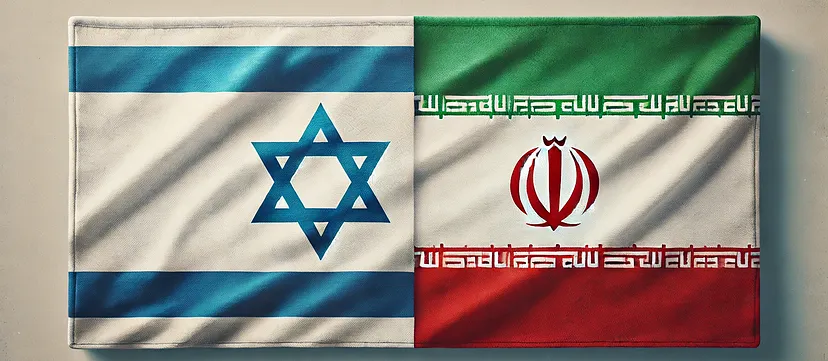Can ChatGPT Predict War In The Middle East?

All text was generated using the Geopolitical Modeller GPT which I configured on ChatGPT.
Event Overview:
On July 30, 2024, Ismail Haniyeh, a prominent leader of the Palestinian political organization Hamas, was assassinated. Haniyeh, who served as the head of Hamas’ political bureau and previously as the Prime Minister of the Palestinian Authority, was a key figure in the organization’s leadership.
Details of the Incident:
The assassination has sparked immediate reactions within Gaza, with widespread unrest and heightened security measures.
International Reactions:
Israel:
The Israeli government has denied any involvement in the assassination. However, Israeli military forces have been placed on high alert, anticipating potential retaliatory actions from Hamas or other militant groups.
United States:
The U.S. reaction to the assassination of Ismail Haniyeh has been one of concern, particularly regarding the potential escalation of violence. The U.S. has emphasized the importance of de-escalation and avoiding further conflict. The State Department reiterated that the killing could destabilize the region and complicate peace efforts. American officials have urged all parties involved to exercise restraint and prioritize diplomatic solutions to address the situation.
United Nations:
The UN Secretary-General expressed deep concern over the assassination and called for a thorough investigation. The UN also emphasized the need for restraint and dialogue to prevent further violence.
Iran:
Iran, a known supporter of Hamas, condemned the assassination and blamed Israeli intelligence for orchestrating the attack, further exacerbating tensions between Iran and Israel.
European Union:
The EU issued a statement calling for peace and stability in the region, emphasizing the importance of addressing underlying issues through diplomatic means.
Scenario Modelling:
Scenario 1: Retaliatory Attacks by Hamas
Probability: 0.6
Description: Hamas launches a series of retaliatory rocket attacks against Israeli targets, prompting a severe military response from Israel. This leads to a short but intense conflict involving airstrikes and ground incursions.
Rationale: Given Hamas’ history of retaliatory actions and the symbolic importance of Haniyeh, there is a high likelihood of a strong reaction. However, the exact scale may be influenced by regional and international diplomatic efforts.
Scenario 2: Internal Hamas Power Struggle
Probability: 0.4
Description: The assassination leads to an internal power struggle within Hamas as different factions vie for leadership. This may temporarily reduce the organization’s capacity to respond externally.
Rationale: Power vacuums often lead to internal conflicts, especially in organizations with complex structures like Hamas. The leadership’s response will depend on how quickly a new leader is accepted.
Scenario 3: Regional Escalation
Probability: 0.5
Description: The incident triggers broader regional tensions, with Iran and its allies increasing their support for Palestinian factions. This may result in proxy conflicts in Lebanon or Syria.
Rationale: Iran’s strong reaction and historical support for militant groups make this a plausible scenario. The region’s complex alliances could quickly escalate the situation.
Scenario 4: International Diplomatic Intervention
Probability: 0.3
Description: In response to the assassination, international actors, including the United Nations and major powers, initiate a diplomatic intervention to de-escalate tensions and prevent further violence.
Rationale: While diplomatic efforts are always a possibility, their success is uncertain given the entrenched positions of the involved parties. The likelihood of success depends on the willingness of both sides to engage.
Scenario 5: Temporary Ceasefire and Negotiations
Probability: 0.2
Description: In the wake of the assassination, there is a temporary ceasefire as Hamas seeks to regroup and Israel calculates its next steps. This period may open a window for renewed negotiations, potentially mediated by international actors.
Rationale: The potential for negotiations often arises after significant incidents, but the deep-seated distrust between parties makes this less likely. External pressures could play a crucial role in facilitating dialogue.
Likelihood of Iran Directly Attacking Israel vs. Using Proxies
Direct Attack by Iran
Assessment:
Probability: 0.1
Rationale: A direct attack by Iran on Israel is considered highly unlikely. Iran typically avoids direct military engagements that could provoke a major conflict, preferring to use asymmetric warfare strategies. The Iranian government is aware that a direct attack would likely invite a severe military response from Israel, potentially supported by the United States and its allies, leading to significant regional destabilization.
Indirect Attack via Proxies
Assessment:
Probability: 0.6
Rationale: Iran has historically favored the use of proxy forces to exert influence and conduct military operations in the region. This approach allows Iran to support its allies and pursue its strategic interests while maintaining a degree of plausible deniability. Given the current situation, Iran is more likely to activate its proxy networks to retaliate against Israel.
Key Proxies:
-
Hezbollah (Lebanon): As a major ally of Iran with significant military capability, Hezbollah could launch rocket attacks or other military operations against Israel. The group’s strong presence along the Israel-Lebanon border and its previous engagements make it a likely candidate for Iranian-directed actions.
-
Palestinian Islamic Jihad (PIJ): Based in Gaza, PIJ is another key Iranian-backed militant group. Unlike Hamas, PIJ is more directly aligned with Iranian interests and could take aggressive actions against Israel under Iranian influence.
-
Shia Militias in Syria: Various Iranian-backed Shia militias operating in Syria could be mobilized to threaten Israel from the Golan Heights region. This could involve rocket fire or other forms of cross-border attacks.
-
Kata’ib Hezbollah and Asa’ib Ahl al-Haq (Iraq): Although primarily focused on Iraq, these groups have the potential to extend their activities to the Israeli front, particularly if they perceive a broader regional alignment against Israel.
Output Generated Via Geopolitical Modeller GPT:
By: Daniel Rosehill

Creative Commons Attribution 4.0 International License